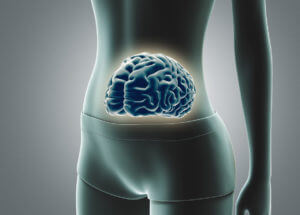Early Onset Dementia is On the Rise: Here’s Why and How to Protect Your Brain
Most of us have accepted that forgetfulness and memory loss are normal parts of the aging process, but what happens when changes in mood and memory begin to happen as early as your 30s or 40s?
Early onset dementia is a decline in cognitive function beginning early in life, and is becoming a reality for an increasing amount of younger people.
Today you’ll learn what early onset dementia is, what causes it, and what steps you can take today to protect the health of your brain.
What Is Early Onset Dementia?
Early onset dementia is any type of dementia first occurring in a person under age 65.
The term ‘dementia’ doesn’t refer to just one type of disease or condition, but is rather an umbrella term for a collection of disorders which affect cognitive function. The symptoms caused by this collection of conditions are due to changes in brain chemistry, structure, or function which progressively worsen a person’s ability to think and/or function normally (1).
Symptoms of early onset dementia:
- Repeating statements and questions over and over.

- Increased forgetfulness.
- Difficulty keeping track of things (like people, places, or possessions).
- Getting lost in familiar places.
- Forgetting the names of family and everyday objects.
- Trouble participating in conversations.
- Having difficulty managing finances or thinking critically.
- Struggling to do normal daily activities, such as cooking or participating in hobbies, and eventually forgetting how to do basic tasks, such as getting dressed or bathing.
- Changes in mood or personality.
Other symptoms of dementia due to changes in the brain can also affect vision, and physical ability like balance or coordination.
Types of Dementia
Early onset dementia, as with all types of dementia, is caused by the progressive damage to the brain. Your brain relies on the healthy function of its cells to communicate with itself, and the rest of the body. So the more damage the brain endures, the less cognitive ability is present.
Different types of dementia cause various types of structural damage within the brain, such as (2):
- Creutzfeldt-Jakob disease
- Lewy Body dementia
- Alzheimer’s disease
- Frontotemporal dementia
- Huntington’s disease
- Parkinson’s disease
- Vascular dementia
- Korsakoff syndrome
If brain changes have more than one cause, it’s referred to as mixed dementia, and researchers believe this type may be more common than previously thought. Alzheimer’s disease is responsible for anywhere from 60-70% of all dementia cases, and is increasing (3).
Why Are Cases of Early Onset Dementia and Alzheimer’s Increasing?
In the U.S., it’s estimated that about 200,000 people have early onset dementia, and they can be in either early-, middle- or late-stage dementia. Alzheimer’s diagnosis rates increased 200% between 2013 and 2017 in people aged 30 to 64, resulting in the average age of 49 in someone living with the early onset of this neurodegenerative condition (4).
Early onset dementia is a difficult road because many patients often have families to provide for, and are frequently caregivers themselves to someone living with chronic illness. Alzheimer’s and dementia also disproportionately impact women more so than men.
Causes of Early Onset Dementia and Alzheimer’s
Early onset dementia is increasingly linked to two causes: autoimmune and metabolic (5).
Even though there is some genetic component, genetic predisposition for Alzheimer’s disease accounts for less than 1% of Alzheimer’s cases, making epigenetics, or the impact of a person’s lifestyle and environment, a far bigger predictor of cognitive health than genetics alone.
Early onset dementia caused by metabolic dysfunction can be impacted by things like blood sugar balance, insulin sensitivity, digestive function, nutrient deficiencies status, and much more.
Early onset dementia caused by autoimmunity is often the result of systemic inflammation within the immune system which then attacks a part of the brain or nervous system required for
healthy function.
Alzheimer’s prevention and treatment requires the help of integrative medicine to properly address the dynamic nature of this condition.
The Gut-Brain Connection
The body’s microbiome, or your collection of friendly gut bacteria, have direct communication with the brain, influencing important functions like mood, memory, energy, and more. Supporting a healthy and diverse microbiome plays a significant role in brain health.
Eating a diet rich in pre- and probiotics helps support a diverse and healthy microbiome, promoting optimal cognitive function.
Nutrient status also impacts energy and vitamin availability to the brain. For example, as we age, our ability to produce B12 in the small intestine decreases, and low B12 levels may be associated with an increased risk of dementia (6).
Similarly, long-term use of acid-lowering drugs can also limit B12 absorption (7). Some vitamins and minerals, such as B12 and magnesium, rely on adequate amounts of stomach acid for proper absorption.
Toxic Burden and Brain Health
Due to increased toxic burden from endocrine disrupting compounds, heavy metals, and other environmental contaminants, the body’s natural detox pathways have a significant amount of unwanted substances to properly metabolize and eliminate from the body.
If you have reduced methylation status, it can be even harder for your body to get rid of toxins, and this can cause things like heavy metals or other neurological toxins to interfere with brain health.
Alzheimer’s and Diabetes
The standard American diet exposes the brain to an increased carbohydrate load, which can create chronically imbalanced blood sugar and increase the likelihood of Alzheimer’s disease. Blood sugar is so closely linked with Alzheimer’s disease that it’s been called the ‘prediabetes of the brain’ (8).
When your blood sugar is high, your body responds by increasing insulin which is inflammatory. Inflammation is a major factor in the development of Alzheimer’s disease.
High blood sugar also causes something called glycation, where the proteins throughout your body–including in your brain–get a sugar molecule added to them. The addition of a sugar molecule to a protein creates advanced glycation end-products, or AGEs, and is very damaging.
11 Tips for a Healthy Brain
-
Eat more omega-3s.
Omega-3 fats DHA and EPA help modulate inflammation and protect brain cells from damaging oxidative stress. The best dietary sources of omega-3 fats are coldwater fatty fish like salmon or sardines, but if seafood isn’t your thing, you can supplement with a high-quality omega-3.

- Exercise your brain. Keeping your brain engaged and active helps support neuroplasticity, which is your brain’s ability to adapt and change over your lifetime. Whether it’s brain games, staying engaged in your hobbies, or just lively conversation, make sure you challenge your critical thinking skills on a regular basis.
- Eat your green veggies. Lutein is a phytonutrient concentrated heavily in greens like broccoli, kale, asparagus, and spinach. Lutein preferentially accumulates in the brain and macula behind the eyes, and has been shown to support cognitive function and neuroplasticity across the lifespan (9).
- Maintain healthy blood sugar balance to keep inflammation low and steady energy to the brain.
- Exercise. Movement increases blood flow to the brain, delivering nutrients and oxygen which support cognitive function.
- Vitamin D has been shown to support mood, memory, immune function, and cognition.
- Limit sugar. Eating a diet high in sugar and processed carbohydrates results in inflammation in your body and brain.
- Vitamin B12. As we age, we’re less able to absorb B12 from diet. Adding a high-quality B12 supplement is especially beneficial for brain health and memory.
- Add folate and B6 too! Folate, B6, and B12 work together to support methylation (detox) processes, and to help make energy for the brain. (*If you have an MTHFR mutation, you can still take B vitamin supplements, but they need to be the “active” forms your body can use.)
- Get your mag! Magnesium is necessary to activate vitamin D. Plus, we also need it for the final step of ATP production, which is your body’s energy currency.
- Support your mitochondria. These are your body’s energy manufacturing powerhouses. Exercise, a nutrient-dense diet, and You can also add a supplement like Mitocore to support optimal mitochondrial function.
Preventing Early Onset Dementia with Integrative Medicine
Cognitive health is driven by a diverse set of genetic, environmental, dietary, and lifestyle factors. And even though getting older is inevitable, the cognitive decline associated with aging is not.
Integrative medicine can help provide the tools to identify and address your risk factors for early onset dementia, and help you become proactive about Alzheimer’s and dementia prevention.
If this article makes you think twice about your recent bouts of forgetfulness, schedule an appointment with CentreSpringMD to evaluate your cognitive risk, and optimize brain health.
Resources
- https://www.nia.nih.gov/health/what-are-signs-alzheimers-disease
- https://www.alz.org/alzheimers-dementia/what-is-dementia/types-of-dementia
- https://www.who.int/news-room/fact-sheets/detail/dementia
- https://www.bcbs.com/the-health-of-america/reports/early-onset-dementia-alzheimers-disease-affecting-younger-american-adults
- https://www.sciencedirect.com/science/article/pii/S2211568413002350
- https://pubmed.ncbi.nlm.nih.gov/15681626/
- https://www.jwatch.org/na33077/2014/01/02/prolonged-gastric-acid-suppression-and-vitamin-b12
- https://www.ncbi.nlm.nih.gov/pmc/articles/PMC5344773/
- https://www.ncbi.nlm.nih.gov/pmc/articles/PMC4638416/
